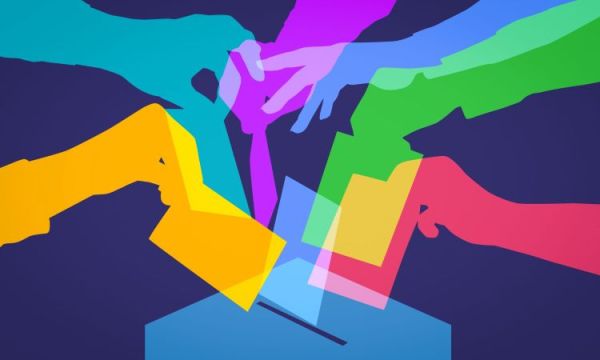IS DISRUPTION GOOD
Disruption scares the living daylights out of people as the name itself conjures up images of destruction and mayhem. And this word coined especially for the use of start-ups all over the world and them being encouraged to state what they are or intend to ‘disrupt’ as it were the prerequisite for funding, this word promises a world a pain. Now the question begs, is disruption really required or is it a euphemism for something more sinister. Let’s examine…..
Firstly, let me tell you … LIFE ISN’T FAIR. So with that … business is business. So one has to live with this. We shall exclusively focus on India’s stint with ‘Disruption’ and 45 years ago, a new kid on the block, Reliance, created all kinds of disruption to shake up leaders like Bombay Dyeing and several others to becoming a giant in business. Those days, people did not term it disruption nor was the business practices which caused disruption looked upon as a fair business practice. Those times were tough for business, as the markets were small and there were established monied players. Capital was challenging and this was the ‘License Raj Era’ where only those with the elusive licenses could trade and grow. The exclusive club of licence holders manoeuvred all kinds of odds, playing all games in and out of the books and in several cases their strategies wiped out competition. These were essentially monopolistic behaviours and Indian governments are failing to provide a level playing field for Indian businessmen time and again.
The last 5 years in India has seen the beginning of disruption of all sorts. First Dominos in the fast food business, then Flipkart, then when all thought you couldn’t sell clothes online – Myntra, then the taxi superhero – Ola and the list is growing. There is a free flow of capital strangely for businesses which promise to make a loss for a long foreseeable time to ensure they disrupt the market essentially only via undercutting the competition. It is a bonanza for IIT and IIM graduates as most of the funding has been bagged by alumni from these schools with minuscule or really no experience in the real world and it appears that they perhaps provide the justification for the funding itself as their impressive resumes may cover for any lacunae in due diligence of the business plan. The qualification card trumps every other negative!
Dominos showed India how home delivered Pizzas could make them a Billion Dollar business. Flipkart’s ability to convince investors to pump Billions of dollars, to offer a wide variety of goods to consumers at their home, changed the dependence of overpriced products and lack of range at retail stores. Myntra made fashion at your doorstep with a wide selection a reality and Ola made the dependence on a rowdy cab or auto driver go away substantially.
Remember… technology use is growing slowly and the market will grow albeit slowly. India will never be China where Alibaba’s single day sales on 11/11 was $30.80 Billion and probably all of India’s annual E-com is one-fourth that size. Indians are wary. Indians are frugal. Indians are not loyal to one brand but to its discounts. But one good thing is that with many people getting online, the playing field is far larger and the opportunity has opened up for many entrepreneurs to be born. But is the piece of the Indian pie really that big that the small fish (read new entrepreneurs) swim with the big fish (read large players entering the segment like Reliance, Tata etc) and yet survive?
Retailers are also facing pressure to offer better selection of products, good prices and innovation. Traditional retailers face a nightmare today because of the online onslaught but they have learnt the valuable lesson to differentiate and become more nuanced thereby creating an opportunity for manufacturers to create variety and improve quality at the same time. Faced with high rents and falling sales, having an online presence has become imperative for those who can afford it.
WHAT DISRUPTION HAS DONE:
1. Ola Cabs, an Uber clone has helped change a fairly rowdy transport system of autos and taxis and are helping in aligning the complete system to benefit the public at large. Until Ola and Uber, city transport were buses and autos which operated at whim and fancy. Does OLA or UBER steal business from other taxi / transport operators? While in some cases this may be true, both have created a platform to allow independent taxi entrepreneurs to be born and remove dependence from companies which largely have squeezed the taxi drivers. Now, taxi owners and operators with the use of both the OLA and UBER app are thriving as they are their own little independent business entities wherein their hard work is rewarded proportionately. Definitely a disruption worth its salt.
2. Dominos started the delivery pizza service. Later we had many entrepreneurs see the opportunity in delivering for so many restaurants which do not have the infrastructure. Thus was born the opportunity for people to order a meal, from their favourite restaurant, through Swiggy, Zomato, Food Panda and a host of others. However, is this sustainable? India is a country which largely seeks discounts and value. Deliveries cost anywhere between Rs.50-100/- and currently in the aim to acquire customers are not charged in some instances. Order bills in general are very small (average 500/-). If the delivery charge were to be factored in, it would have to be communicated to the customer as a service charge which they pay 10% to most restaurants while dining in. If communicated well, people wouldn’t mind the charge. However, with so many funded delivery companies and all the investor money vanishing and new rounds of funding becoming tougher to raise, the fittest model will survive and still be a boon for the consumers at large.
3. Flipkart and Amazon have been burning big bucks to discount and offer a platform for traders to thrive. With PayTM and Snapdeal just behind (Alibaba has a stake in both), this poses a huge threat for traditional retailers who have high costs in rentals and operations. While larger retailers will drive their business with deep discounts and better variety, smaller retailers will in time shut down or reinvent themselves to offering products which are generally hard to find on the internet. These online platforms have offered boutique manufacturers an opportunity to sell products directly to consumers, such as Shopify and Magento, which in my opinion is a disruption worth tons or a desirable disruption. A story which was exciting to hear was a lady in Surat who went store to store trying to sell sarees she manufactured. She was turned down at many stores and those who bought them never paid on time and harassed her. She started selling online and now directly sells to customers and gets paid immediately. Her revenues have touched over 20 Crores. This is a disruption which really allows more entrepreneurs to be born and breaks the erstwhile retailer stranglehold over selling. Out with the old and in with the new.
4. Makemytrip, cleartrip, yatra, oyo rooms and many others are making the travel agent stay sharp. Gone are the days of overpricing and giving wrong information. While travel agents still exist, what the online businesses have done is make them more efficient and provide a service to show their customers that placing a call to them is far valuable than going online as they can work with them in a dynamic situation tailoring their every need, on the go. While the comfort of buying your hotel room and plane ticket is on your phone, travel costs have come down substantially with so much information available through these channels. This is the kind of disruption the mass needed.
ARE YOU SCARED OF DISRUPTION?
Don’t be as the water finds its own level!
Effecting the right kind of disruption is actually an opportunity, as even if an entrepreneur gets plenty of funding and grows to becoming a giant, it is the smaller niche areas and gaps which can be identified and perfected to build a sustainable business. The key one should never forget is that the “CUSTOMER IS KING”. (Learn from Nordstrom!).
There are so many areas in a country like India which needs disruption. Opportunities exist in Education, food, news, transport and hundreds of areas which have micro and macro impact. Just being a copycat isn’t enough. Though I believe that it is a start as big countries like Japan and China too started the same way. Steve Jobs bettered the mobile, tablet and music business (which had many players and products already) with an ecosystem called App Store and fabulous products which synced seamlessly. So nothing wrong with that. However, tailoring it to suit India is the key.
INVESTORS MONEY
Investors money is limited. Burning cash is really not the way to go. Many will learn this lesson the hard way. One needs to be frugal with a startup and strengthen the revenue model more than the valuation model. If Steve Jobs just focussed on valuation, we would never have had the Apple story today.
This valuation business is dangerous and is going to hurt a lot of good entrepreneurs who have great revenue models. Billionaire star investor Warren Buffet is investing in hard assets even today which shows his intent to stay away from the volatile valuation game. Getting money like the way Flipkart, snapdeal, Ola, Housing etc did may not happen going forward as more numbers of people are going to create similar products and investors will back them with smaller amounts of money and the ones who get their revenue and scaling model right will get more money going forward.
FINALLY…. IS DISRUPTION GOOD?
For most parts … Yes.
It should be really to address a gap or a need in the market and unfair trade practices must not be used in the guise of disruption. A positive outcome of disruption caused by new businesses is that entrepreneurs cannot wake up one day and say that they will just start a business as an alternative to being on someone else’s payroll. A new era is being ushered in with true differentiation. The understanding of the gap or need and creation of sound business models essentially creates a breed of serious entrepreneurs.




Comments
Post a Comment